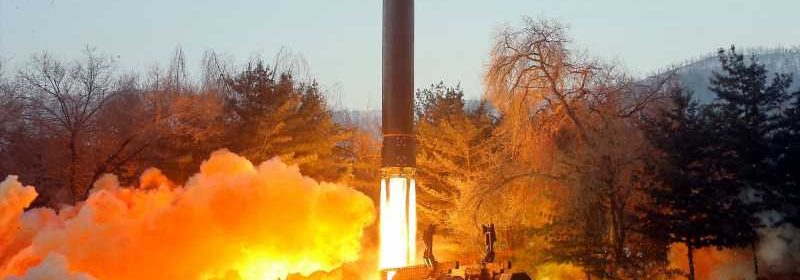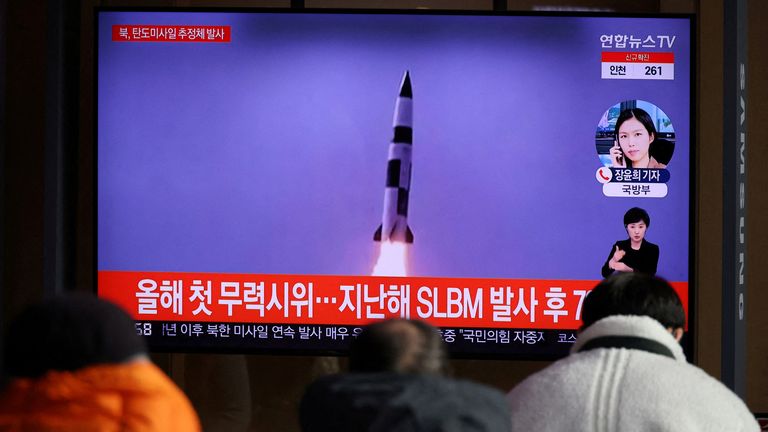North Korea reveals it tested hypersonic missile that travels ‘five times faster than speed of sound’

North Korea has fired a hypersonic ballistic missile that successfully hit a target – its second test in a matter of months.
Wednesday’s launch was the first by the secretive state since October and was detected by a number of nearby nations.
Unlike ballistic missiles that fly into outer space before returning on steep trajectories, hypersonic weapons fly towards targets at lower altitudes and can achieve more than five times the speed of sound – or 3,850mph.
“The successive successes in the test launches in the hypersonic missile sector have strategic significance in that they hasten a task for modernising strategic armed force of the state,” state news agency KCNA reported.
It added the warhead detached from its rocket booster and “precisely hit” a target 430 miles away.
While it has not tested nuclear bombs or long-range intercontinental ballistic missiles (ICBMs) since 2017, in recent years North Korea has developed and launched a range of more manoeuvrable missiles.
Hypersonic weapons are considered the next generation of arms that aim to rob adversaries of reaction time and traditional defeat mechanisms.
Photos of the missile used in Wednesday’s test show what analysts said is a different version than the weapon tested last year, and was first unveiled at a defence exhibition in Pyongyang in October.
The US State Department said the test violated multiple UN Security Council Resolutions and poses a threat to North Korea’s neighbours and the international community.
Talks aimed at persuading North Korea to surrender its nuclear weapons and ballistic missile arsenal have been stalled since a series of summits between leader Kim Jong Un and then-US president Donald Trump broke down with no agreement.
Joe Biden’s administration has said it is open to talking to North Korea, but Pyongyang has said American overtures are empty rhetoric without more substantive changes to “hostile policies” such as military drills and sanctions.
Source: Read Full Article

